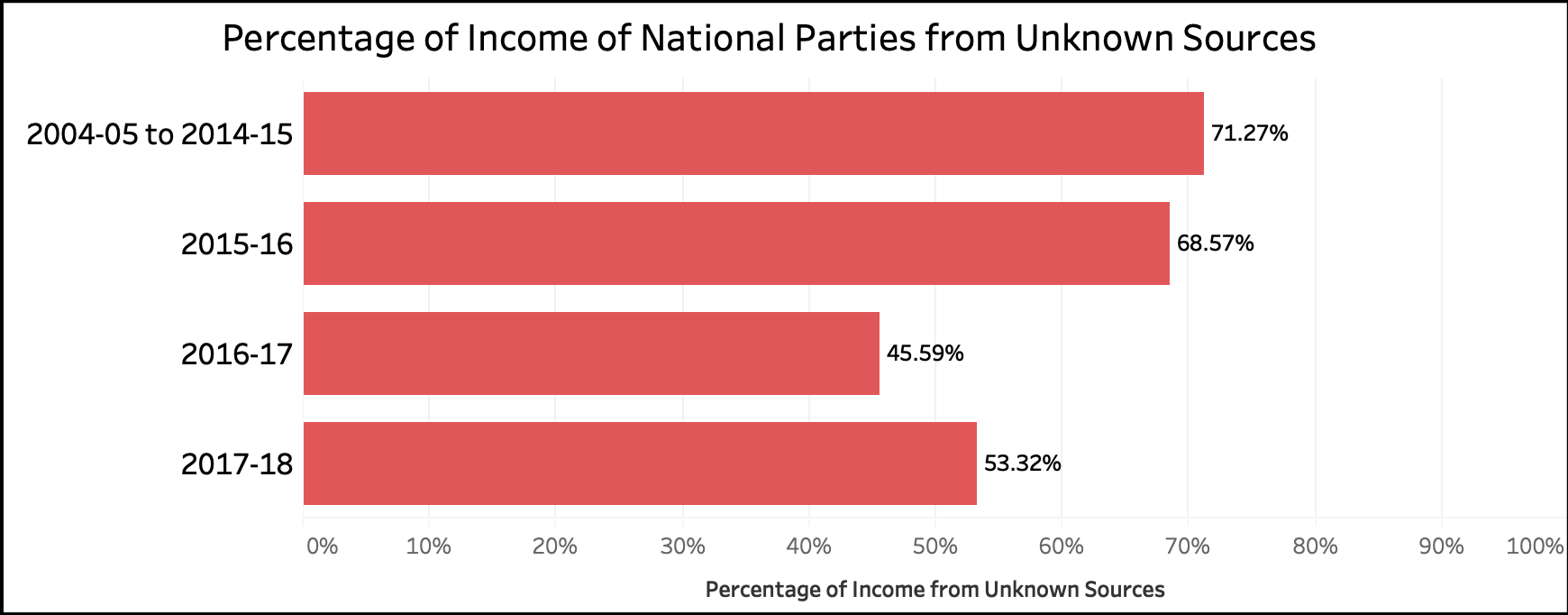Greater transparency in political funding has been a long standing demand of the civil society. Latest data compiled by ADR suggests that we are a long way from achieving transparency in political funding. In 2017-18, National parties received Rs. 689.44 crores from ‘Unknown Sources’ with electoral bonds making up for more than 30% of such unknown income.
Greater transparency in political funding has been a long standing demand of the civil society. Latest data compiled by Association for Democratic Reforms (ADR) suggests that we are a long way from achieving transparency in political funding. In 2017-18, National parties received Rs. 689.44 crores from ‘Unknown Sources’ with electoral bonds making up for more than 30% of such unknown income.
The Opaqueness in Political funding
Section 29C of the Representation of People Act (R.P. Act), 1951, mandates that all donations made to Political Parties by any individual or a company, in excess of Rs. 20,000 should be reported to the Election Commission (EC) before the due date. The issue with such a rule is that parties list the names of only such individuals/companies who donate in excess of Rs. 20,000. The donations below Rs. 20,000 do not have any record. The Finance Bill of 2017 introduced a new provision that every donation of Rs. 2,000 or more shall be received only by way of by an account payee cheque or bank draft or use of electronic means. But the issue with this provision is that political parties still do not have to divulge details of the donor if the donation is less than Rs. 20,000. Hence there was no improvement in transparency.
The introduction of Electoral bonds in 2017-18 further exacerbated the problem of opaqueness in Political funding. As per this scheme, parties are not required to disclose the name of the person/entity donating to a party through electoral bonds. Since the bonds are bearer instruments and have to be physically given to the political parties for them to encash, parties will know who is donating to them. It is only the general citizens that will not know who is donating to which party. Hence Transparency in political funding is not enhanced because of electoral bonds. In fact, the bonds increase the anonymity of political donations.
More than 50% of the Income of National Parties in 2017-18 from ‘Unknown Sources’
In the year 2017-18, the National parties together reported an income of Rs. 1293.05 crores of which Rs. 689.44 crores came from ‘Unknown Sources’. In other words, more than 53% of the income of national parties in 2017-18 came from ‘Unknown Sources’. As expected, Electoral bonds made up for Rs. 215 crores or more than 30% of the income from ‘Unknown Sources’. The worrying aspect is that electoral bonds worth more than Rs. 800 crores are already bought in 2018-19 (as of December 2018). This would mean that the share of income from ‘Unknown Sources’ might go up in 2018-19.



